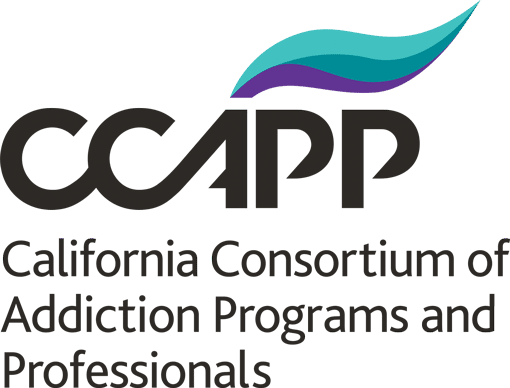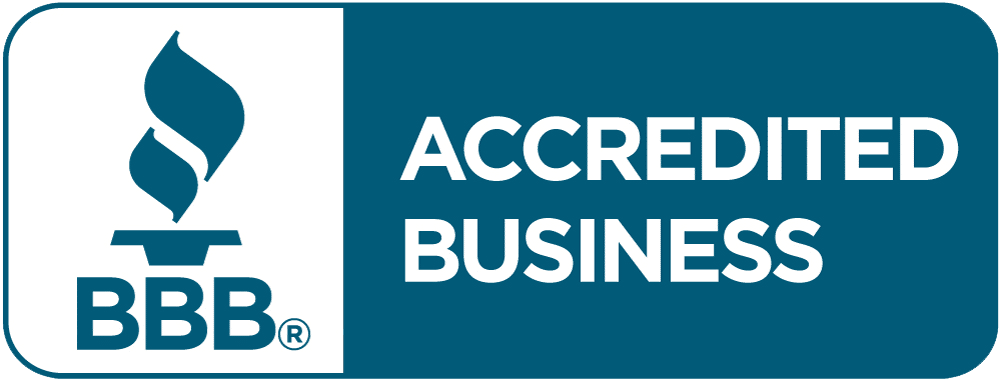
Alcohol addiction doesn’t just affect the individual grappling with dependency; it also profoundly impacts their family dynamics. The ripple effects of addiction can be devastating, causing strain in relationships, breakdowns in communication, and emotional turmoil within the family unit.
Nevertheless, with understanding, support, and practical strategies, families can navigate the challenges of alcohol addiction and take steps toward healing and rebuilding their relationships. Continue reading we look into the dynamics of family and alcohol addiction, exploring essential ways to foster healing within the family unit.
Alcohol Addiction Among Adolescents and Young Adults
Teenagers and young adults struggling with alcohol or drug addiction often have family members who face similar challenges. However, remember to recognize that teenagers can develop addictions even if their parents do not.
The adolescent years can be particularly turbulent for young individuals who consume alcohol. While approximately one in four Americans engages in social drinking, a striking three out of four American adults with alcohol-related issues started drinking when they were 21 years old or younger. Teenagers and young adults who initiate alcohol consumption at an early age are at significantly higher risk of developing alcohol-related problems.
Understanding the Impact of Alcohol Addiction on Family Dynamics
Alcohol addiction is a complex issue that goes beyond an individual’s substance abuse. It affects the entire family unit, altering the dynamics and creating a challenging environment for everyone involved. To effectively heal relationships, you must understand how addiction impacts the family. Let’s look at some key aspects:
The Cycle of Addiction
Alcohol addiction often follows a predictable pattern that impacts family dynamics at each stage. Understanding this cycle can shed light on the challenges faced by family members and enable them to develop empathy and support systems. The cycle typically includes the following stages:
1) Substance Abuse and its Impact on Behavior
Alcohol addiction can lead to erratic behavior, mood swings, and impaired judgment. The individual struggling with addiction may prioritize alcohol over family commitments and responsibilities, leading to conflicts and strained relationships.
2) The Erosion of Trust and Communication Breakdown
As addiction progresses, trust within the family unit starts to deteriorate. Promises may be broken, lies may be told, and communication may become strained. Family members may find it challenging to trust the individual struggling with addiction, creating further emotional turmoil.
3) Emotional Strain and Codependency
Living with someone battling alcohol addiction can be emotionally draining for family members. They may feel constantly worried, anxious, and frustrated. In some cases, family members may unknowingly enable the addiction by engaging in codependent behaviors, such as covering up for the individual’s actions or making excuses for their behavior.
Roles within the Family
In families affected by alcohol addiction, specific roles often emerge as coping mechanisms. Though initially adopted to maintain some semblance of stability, these roles can perpetuate dysfunctional family patterns. Here are some common roles family members may assume:
1) The Enabler
The enabler often tries to shield the individual struggling with addiction from the consequences of their behavior. They may make excuses for them, cover up their mistakes, or even enable their drinking by providing financial support or making alcohol readily available.
2) The Caretaker
The caretaker assumes the responsibility of taking care of the addicted family member and may sacrifice their own needs and well-being in the process. They may become overly involved in managing the consequences of the addiction, neglecting their own emotional and physical health.
3) The Hero
The hero strives to maintain a sense of normalcy and stability within the family. They often excel academically, socially, or professionally, attempting to compensate for the chaos caused by the addiction. The hero may suppress their emotions and needs, adopting a facade of strength and control.
4) The Scapegoat
The scapegoat serves as a distraction from the individual struggling with addiction. They often exhibit rebellious or disruptive behavior, drawing attention away from the addict. This role allows the family to focus on the scapegoat’s actions rather than confronting the addiction directly.
5) The Mascot
Experts in mental health have studied the use of humor to cope with challenges. This idea forms the basis of the mascot, an important family role that often relies on humor to protect itself from emotional pain.
The mascot understands the tense and unfriendly atmosphere at home. They use humor to lighten the mood and distract the rest of the family from their own issues. Even though others may see them as childish or naive, mascots are often quite sensitive.
6) The Lost Child
The final role in addiction within a family is called the “lost child.” This person often goes unnoticed by the rest of the family. In fact, they may actively try to go unnoticed by keeping a low profile and avoiding conflicts whenever possible.
All the attention that should have been given to the lost child, especially from the caregiver, gets redirected to the person with the addiction. Whether the lost child meant it or not, feeling invisible in their own home can create problems with their self-esteem and make it difficult for them to express their needs in the long run.
Steps Towards Healing and Rebuilding Relationships
Overcoming the challenges posed by alcohol addiction requires a collective effort from the entire family.
1) Education and Awareness
Knowledge is power when it comes to understanding addiction. Educate yourself and your family members about alcohol addiction, its effects, and the available treatment options. Attend support groups, seek therapy, and read reputable resources to gain insights into the nature of addiction and its impact on family dynamics.
2) Open and Honest Communication:
Rebuilding relationships starts with open and honest communication. Create a safe and non-judgmental space where family members can express their feelings, concerns, and frustrations. Encourage active listening, empathy, and understanding. Effective communication fosters trust, strengthens bonds, and provides a foundation for healing.
3) Establish Boundaries
Setting boundaries is essential for maintaining healthy relationships while supporting a loved one with an alcohol addiction. Establish clear boundaries regarding acceptable behavior, expectations, and consequences. This can help protect family members from the negative impact of addiction while encouraging individuals struggling with addiction to take responsibility for their actions.
4) Seek Professional Help
Alcohol addiction is a complex issue that often requires professional intervention. Encourage the individual struggling with addiction to seek treatment, such as therapy, counseling, or rehabilitation programs. Family therapy can also be highly beneficial, as it provides a platform to address underlying issues, improve communication, and develop effective coping strategies.
5) Practice Self-Care
Caring for oneself is extremely important when dealing with the challenges of alcohol addiction within the family. Encourage family members to prioritize their physical, emotional, and mental well-being. Engage in activities that promote relaxation, exercise regularly, and seek support from friends, support groups, or therapists. By taking care of themselves, family members can better support their loved ones and contribute to the healing process.
6) Foster a Supportive Environment:
Creating a supportive environment is vital for healing relationships. Encourage family members to demonstrate empathy, compassion, and patience toward the individual struggling with addiction. Celebrate milestones and successes, no matter how small, and provide reassurance that everyone is committed to the journey of recovery together.
7) Practice Forgiveness
Forgiveness is a powerful tool for healing and rebuilding relationships. While it may be challenging, it is important to let go of resentment, anger, and blame. Understand that addiction is a disease and that the individual struggling with it may have made mistakes under its influence. Forgiveness does not excuse the behavior but allows for growth and the possibility of moving forward together.
Rebuilding Trust
One of the most significant casualties of alcohol addiction within a family is trust. The broken promises, lies told, and emotional turmoil experienced erode the trust between family members. Rebuilding trust is a gradual process that requires consistent effort from all parties involved. Here are some strategies to help rebuild trust:
1) Consistency and Transparency
Consistency in behavior is key to rebuilding trust. Individuals struggling with addiction must demonstrate a sincere commitment to recovery and consistently follow through on their promises. Transparency is also crucial—being open and honest about their progress, challenges, and setbacks can help rebuild trust over time.
2) Patience and Understanding
Family members must understand that trust takes time to rebuild. It is normal to feel skeptical or cautious initially. Patience is essential in allowing the person struggling with addiction to prove their commitment to recovery and make amends for past mistakes.
Re-establishing Boundaries
Establishing and maintaining boundaries is another vital aspect of healing family dynamics affected by alcohol addiction. Boundaries help protect family members’ emotional well-being while encouraging individuals struggling with addiction to take responsibility for their actions. Here are some tips for establishing boundaries:
1) Clearly Communicate Expectations
Openly discuss expectations with the individual struggling with addiction. Clearly communicate what behaviors are acceptable and unacceptable within the family. This clarity can prevent confusion, minimize conflicts, and provide a framework for healthier interactions.
2) Consistency and Enforcement
Once boundaries are established, it’s important to consistently enforce them. This consistency demonstrates that the boundaries are non-negotiable and reinforces their importance. Family members should hold each other accountable for respecting the agreed-upon boundaries.
Supporting the Individual in Recovery
Supporting the person struggling with alcohol addiction is vital for their recovery and the overall healing of the family unit. Here are some ways family members can provide support:
1) Active Participation in Treatment
Encourage the individual struggling with addiction to seek professional help and actively participate in their treatment. Offer to accompany them to therapy sessions or support group meetings, if appropriate. Your presence can provide comfort and motivation for them to stay committed to their recovery journey.
2) Avoid Enabling Behaviors
Avoid enabling the individual’s addiction. Enabling behaviors can perpetuate the cycle of addiction and hinder recovery progress. Instead, encourage independence, responsibility, and accountability. This may involve refraining from covering up their mistakes, providing financial support that enables their drinking, or making excuses for their behavior.
3) Celebrate Milestones and Progress
Recovery from alcohol addiction is a challenging and ongoing process. Celebrating milestones, no matter how small, can provide encouragement and motivation for the individual in recovery. Acknowledge their progress, such as staying sober for a certain period or actively participating in therapy. Positive reinforcement can help strengthen their commitment to a healthier lifestyle.
4) Engage in Family Activities
Participating in positive, sober activities as a family can help strengthen the bonds between family members and create new, healthy memories. Plan outings, game nights, or other activities that promote connection and enjoyment without the need for alcohol. By engaging in these activities, you provide a supportive and inclusive environment for the individual in recovery.
Moving Forward with Hope and Resilience
Healing family dynamics affected by alcohol addiction is a journey that requires dedication, patience, and resilience. It is important to remember that recovery is possible, and with the right support and strategies, families can rebuild their relationships and create a healthier, more supportive environment.
Remember, healing is a collective effort, and each family member plays a vital role. By prioritizing self-care, seeking support, and maintaining a hopeful mindset, families can navigate the challenges of alcohol addiction and emerge stronger, more connected, and filled with renewed hope for the future.
How Can Christian’s Drug Rehab Help?
Christian’s Drug Rehab can play a significant role in healing family dynamics, addressing alcohol addiction, and fostering the recovery and restoration of relationships. Through a faith-based approach, our programs integrate spiritual guidance, support, and biblical principles into the treatment process. These programs provide a unique environment that focuses on the spiritual, emotional, and physical well-being of both the individual struggling with addiction and their family members.
By incorporating Christian teachings, values, and community support, we offer a holistic approach to recovery, promoting forgiveness, redemption, and healing. This approach can help individuals and families rebuild trust, establish healthier communication patterns, and find strength and support in their faith as they navigate the challenges of alcohol addiction together. Contact us today or call us at (866) 434-1330 if you are ready to take the next step with us.












